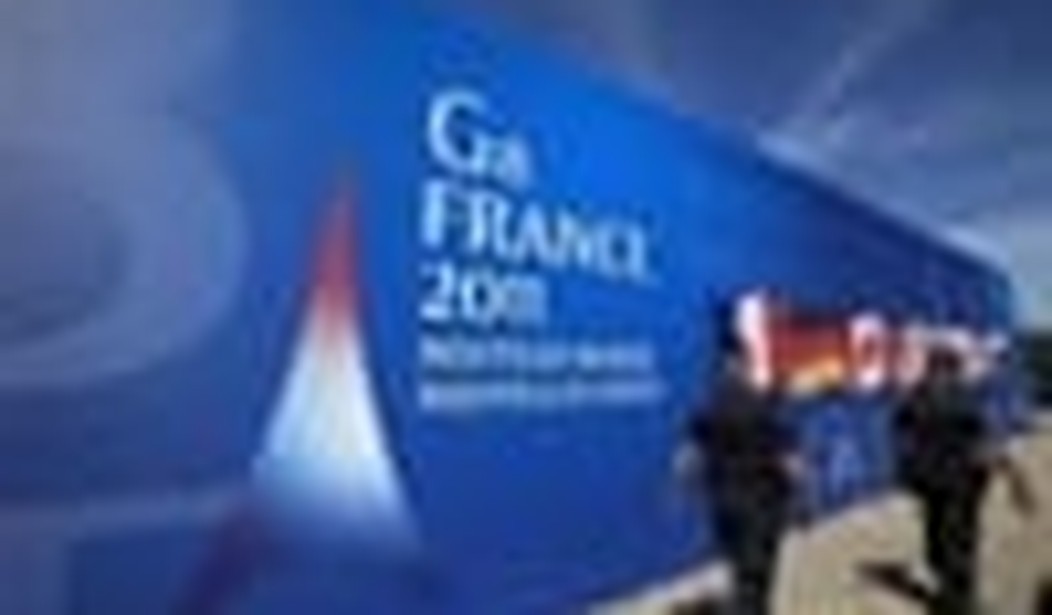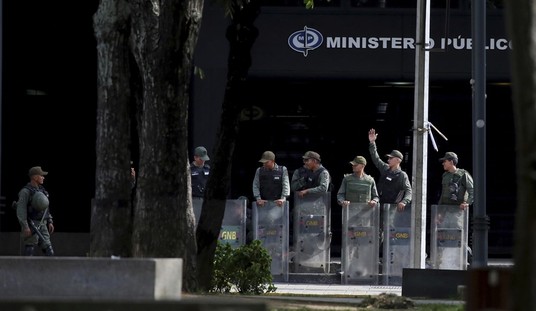We have reached a transformative period in the Middle East, complete with the unpredictability and instability that any tipping point brings. The Arab Spring is often framed solely as an uprising by populations challenging oppressive regimes, but the conflict within the Arab Spring is equally as important. It is absolutely critical that the G8 and other countries and institutions that have pledged $40 billion to support the Arab Spring understand this.
If the West does not strategically support the non-Islamists within the Arab Spring, the movement will befriend the Islamists. The governments that have held back the Muslim Brotherhood will collapse — or oversee reforms that give them unprecedented influence. The Islamists may not win outright majorities in future democratic parliaments, but they could still hold enough seats to exercise veto power over any decision.
Raising its expectations in Egypt, the Muslim Brotherhood will contest half of the seats during the September elections. The Brotherhood is becoming increasingly active in Libya, too, and now seeks to “coordinate the position of the opposition” in Syria. The Algerian government, meanwhile, is releasing 7,000 Islamist prisoners. The major opposition party in Yemen is Islah, a Muslim Brotherhood affiliate. One of its leaders is blacklisted by the U.S. for his ties to al-Qaeda. The party itself favors a morality police. The picture isn’t any prettier in Tunisia, where the leader of the largest Islamist party is predicting the destruction of Israel.
The Arab Spring is opening up decisive opportunities for the Islamists, but it also gives a platform to non-Islamists who were also silenced. Until now, the competing voices were the oppressive regimes and the Islamist opposition, both of which sought to make the secular democratic forces invisible. For the first time, political openness will permit a contest of ideas to be waged. The natural human urge to criticize, improve, and innovate will result in challenges to the Islamists as people seek new alternatives. Even theologically, the innate tendency to conform religion to one’s own needs and wants will promote a much-needed, if perilous, debate.
It is a mistake to dismiss the Islamist elements within the Arab Spring. It is also a mistake, though, to assume the Islamists are unrivaled. In Egypt, the polls show that the Muslim Brotherhood is in second place behind the secular Wafd Party, despite the Brotherhood’s huge organizational advantages. Amr Moussa, an enemy of Iran, has a wide lead for the presidency. The protests on May 27 against the military regime were boycotted by the Brotherhood, but the liberals still had a strong showing. And if all else fails, there’s hope in the declaration by the military rulers that they won’t allow “another Khomeini” or “extremist factions” to come to power.
In Bahrain, the royal family is hard at work trying to make the Shiite opposition look like an Iranian puppet. The hardline Haq group has hinted at requesting Iranian intervention to help evict Saudi forces propping up the royal family, but the largest Shiite party and others have publicly demanded that Iran stay out. A spokesman for al-Wefaq flatly says, “We don’t want the Velayat-e-Faqih in Bahrain,” and even goes so far as to say, “Let the Palestinians solve their own problems.” The chairman of the Bahrain Transparency Society says, “We want genuine democracy, not clerical.” A recent poll found that only 25 percent of the Shiites want Sharia law and almost 75 percent want parliamentary democracy where non-Islamist parties participate. Nearly half of the Sunnis oppose Sharia law.
The Syrian regime has likewise tried to paint its opponents as Islamic extremists. Protesters in Homs reacted to this accusation by chanting, “We want freedom, not Salafism.” The flags of Iran, Hezbollah, and Russia are being set on fire by demonstrators. Dr. Barry Rubin estimates Islamist support in Syria to be about 15 percent and concludes the country “isn’t likely to see an Islamist takeover.” By silencing the voices of non-Islamist liberals, the Assad regime has skillfully promoted the illusion that Islamist rule is the only alternative.
Yemeni President Saleh is following the same strategy. His government has coddled the Salafists and allowed al-Qaeda to gain ground. Now he uses the group’s advance to portray his rule as essential in order to stop it. The Yemeni opposition is blaming Saleh for al-Qaeda’s rise in the country. It says that it would destroy the “nuisance” in months. The Muslim Brotherhood (and the Salafists) make up a major component of the six-party opposition coalition called the Joint Meetings Party, but secularists are also included. Their alliance will only last as long as Saleh is in power.
Libya is another case where there are allies and adversaries among the opposition. The press has been giving lots of attention to a rebel commander named Abdel-Hakim al-Hasidi, a member of the Libyan Islamic Fighting Group arrested in Pakistan after fighting in Afghanistan. He says about 25 of his 300 fighters fought in Iraq. Obviously, the presence of Islamists among the rebels is frightening. However, U.S. intelligence believes that they are a small minority in a diverse, mostly secular opposition. The rebels are quick to reject claims that they have a relationship with al-Qaeda. The vice chairman of the Transitional Council unequivocally says, “There is no place for an Islamic state in Libya.”
It is important to remember that democracy is a process, not an endpoint. The region will move forward incrementally, with Islamists sparring with the liberals and secularists every step of the way. The $40 billion pledged by the G8 can help spur the democratic process, but it cannot guarantee its success. The Arab Spring can either be a friend to the Islamists or an enemy. The West’s support should be directed towards making it the latter.









Join the conversation as a VIP Member